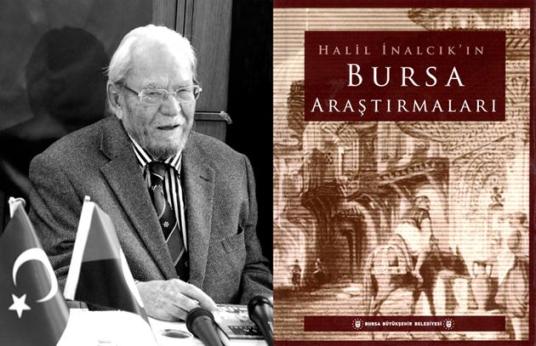Prof. İnalcık's Book on Bursa Launched
BY ALP RODOPLU (HIST/VI)
Mayor Recep Altepe of the Bursa Metropolitan Municipality was on campus Tuesday, January 15 for the launch of Prof. Halil İnalcık's book on the history of the city of Bursa, entitled "Bursa Araştırmaları."
Held in the Halil İnalcık Center for Ottoman Studies, the event comprised a panel at which Rector Abdullah Atalar, Mayor Altepe and Prof. İnalcık spoke to a diverse audience. Including Prof. İnalcık's students, old and new, members of the mayor's entourage and the history department, and a considerable group from the national press, the attendees filled the room to its limit, with latecomers standing in the hallway to hear Prof. İnalcık speak about the history of Bursa in particular and about historical scholarship in general.
To articulate the significance of Prof. İnalcık's scholarship, Prof. Atalar referred to his work on the early period as having changed what was accepted to be the date of the Ottoman state's founding. Prof. Atalar also made the point that the university takes instruction in history very seriously and that Prof. İnalcık has played a pivotal role in this, having established the Department of History.
Following the rector, Mayor Altepe spoke about how he endeavors to support historical research on the city of Bursa. He credited Prof. İnalcık as having served as a guide in the course of his and other city officials' efforts to "save history and our historical heritage." For example, the statue of Osman Ghazi with a sword in one hand and a book in the other was recently replaced by a new one, where the sultan sits astride a horse, with no book, in light of Prof. İnalcık's informing the Bursa authorities of the old statue's historical inaccuracy.
Finally, Prof. İnalcık himself took the floor. Referring back in time to a date circa 1945, he told the story of how he had discovered a vast collection of registers of the kadıs (judges) of Bursa, and how he saved them from being destroyed while conducting research in the city. Numbering around two hundred and fifty, these registers date to the time of Mehmed the Conqueror. They have proven to be fundamental to the study of the history of Bursa and greatly influential for Ottoman history, particularly for scholarship in economic, social and legal history.
"Bursa Araştırmaları" is certain to have continuing influence due to its substance as well as to the exemplary collaboration demonstrated between a historian and a mayor. Like that of the extensive corpus of Prof. İnalcık's scholarship, the impact that this book will enjoy owes much to the historical method he has developed, with its accompanying historical consciousness and conscience.
